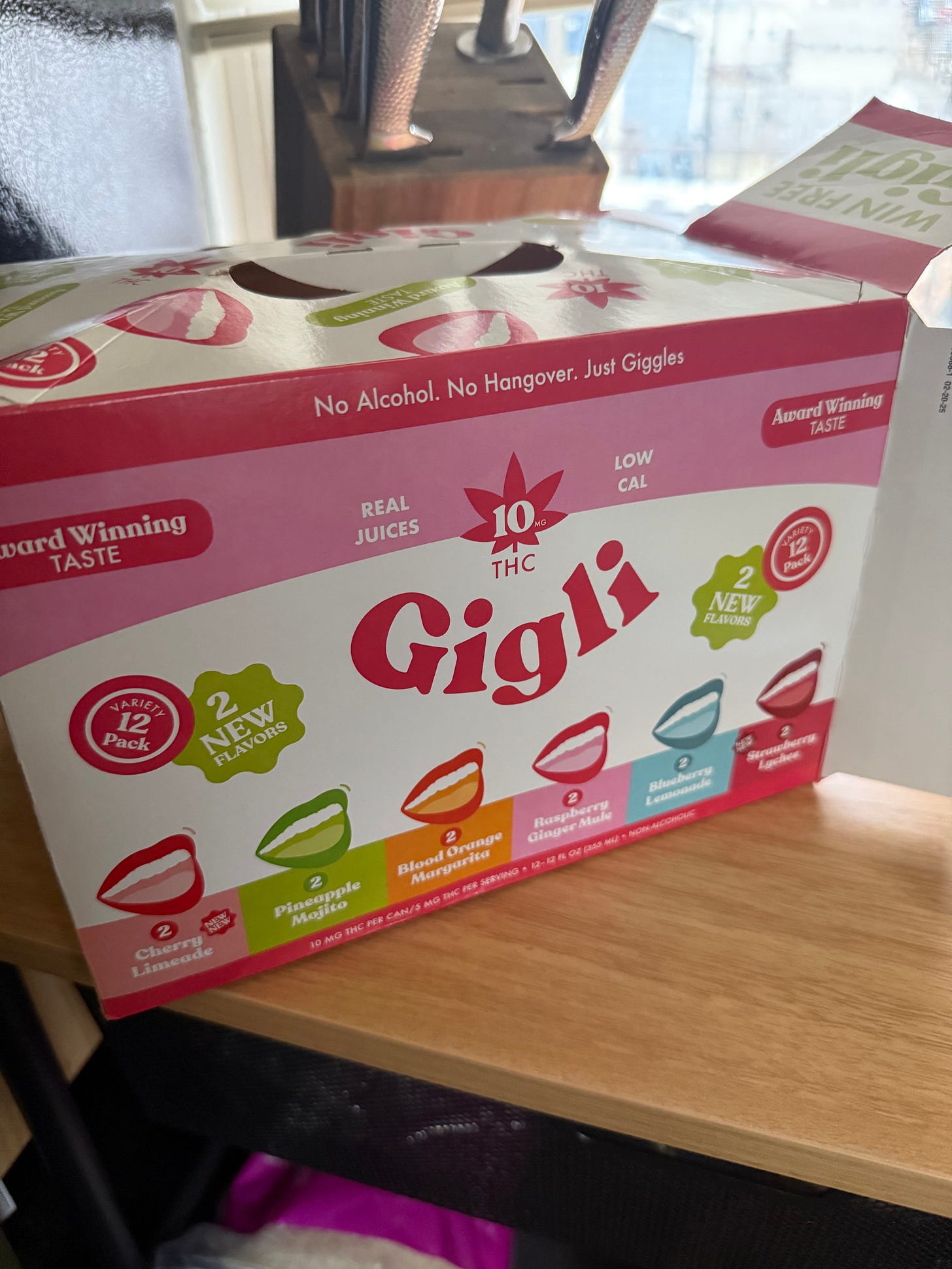Congress Bans Intoxicating Hemp Products
The ban is set to go into effect a year from now
Trump’s record on cannabis — Trump 1.0
Edit: Added details showing where support for the ban stemmed from — per Axios.
Note from the Editor: As an avid proponent of medicinal and recreational marijuana, I had high hopes (pun intended) that under the Trump administration, we’d see some moves in favor of further legalization and expanded recreational access for the public. During his first term, Trump had made a few pro-hemp moves that led many to believe he’d continue in that direction in his second term.
Lets take a look at that record…
“hidden” within the bill to fund/re-open the government that was passed on November 12th, was language re-criminalizing most consumable hemp-derived THC products.
In December 2018, Trump signed the Hemp Farming Act into law, which:
Removed hemp (≤0.3% delta-9 THC) from the Controlled Substances Act
Legalized hemp as an ordinary agricultural crop at the federal level
Opened the door for the huge CBD and hemp-derived products market
Additionally, Trump granted commutations and pardons to a number of people with non-violent drug and cannabis offenses, including at least a handful specifically tied to marijuana.
In Trump’s first term, he commuted 16 people and pardoned 6 individuals for cannabis offenses. However, there are still thousands of people in federal prison for cannabis awaiting relief. Trump has already shown a willingness to use his clemency power, but it is not clear if that will be extended to those with cannabis offenses.
Not all the marijuana related actions Trump took in his first term were pro-cannabis. In 2018, Jeff Sessions rescinded the Cole memo, which removed Obama-era guidance telling prosecutors to mostly leave state-legal marijuana businesses alone.
In the memorandum, Attorney General Jeff Sessions directs all U.S. Attorneys to enforce the laws enacted by Congress and to follow well-established principles when pursuing prosecutions related to marijuana activities. This return to the rule of law is also a return of trust and local control to federal prosecutors who know where and how to deploy Justice Department resources most effectively to reduce violent crime, stem the tide of the drug crisis, and dismantle criminal gangs.
This action by Trump’s admin left many analysts giving him a “mixed” or “negative” score regarding his stance on cannabis, despite those positive first-term actions.
Where we’re at now — Trump 2.0
Trump had stated in 2025 that he would review whether to reclassify marijuana from a Schedule 1 drug to Schedule 3, which would significantly ease the federal restrictions and penalties on its use and production. The move to reschedule was initiated under the Biden admin in 2023, and has yet to come to fruition. According to Marijuana Moment, the White House confirmed roughly three months ago that the process is still ongoing. Here are some profound words from the President:
Some people like it. Some people hate it — people hate the whole concept of marijuana, because it does bad for the children [and] it does bad for people that are older than children.
But we’re looking at reclassification, and we’ll make a determination over the next few weeks — and that determination, hopefully, will be the right one.
I’ve heard great things having to do with medical [cannabis], and I’ve heard bad things having to do with just about everything else. But medical, for pain and various things, I’ve heard some pretty good things — but for other things, I’ve heard some pretty bad things.
However, “hidden” within the bill to fund/re-open the government that was passed on November 12th, was language re-criminalizing most consumable hemp-derived THC products.
It mainly targets “intoxicating” hemp-derived products, such as Delta-8, many delta-9 beverages and edibles, THCA products, and other synthetic or chemically converted cannabinoids. It also caps THC in consumable products at about 0.4 mg per serving or container, which would effectively knock almost all current hemp THC drinks and edibles off the market.
Industrial hemp (fiber, grain) and non-intoxicating CBD products with only trace THC are intended to remain legal.
I spoke with an employee of a local Boos Boys liquor store in Sioux Falls, who asked to remain anonymous. When asked how this might impact their business, they responded:
This is going to be a huge hit to our partner’s and our own business, as THC products have become a huge portion of our sales.
Employees at the Downtown Sioux Falls Common Sense location also expressed similar concerns, as sale of these hemp-derived products has been a boon for many local businesses.
The ban is set to go into effect a year from the day the bill was signed into law, so stock up now while you still can.
Who wanted this to happen?
In an article from Axios covering the funding bill, published on November 15th, they gave additional insights into whose been pushing for this move, and who fought against it.
Sen. Rand Paul (R-Ky.) waged a last-minute fight against it, threatening to hold up the bill until he got a vote on an amendment to strip the THC language, but Republicans were largely united on ending the shutdown.
The other side: Sen. Mitch McConnell (R-Ky.) authored the 2018 Farm Bill but has been a leading proponent of closing the THC loophole, arguing that companies have exploited it to create intoxicating substances.
39 state attorneys general signed a letter on Wednesday asking Congress to outlaw intoxicating hemp products at the federal level.
Public health officials have argued that the products’ lack of oversight and regulation pose risks to minors.”
Considering this, it seems unlikely there will be enough momentum coming from any direction to move the needle on the ban before it goes into effect next November.






The BS bill really should be repealed.